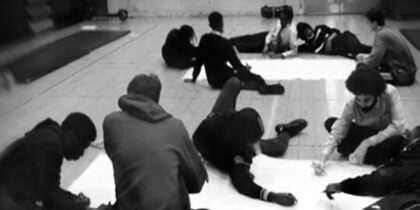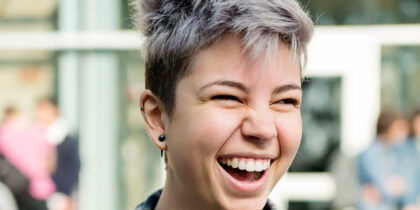Learning from INTEGRATE’s work with excluded young people
Graham Durcan, Sally Zlotowitz and Jessica Stubbs
Excluded and vulnerable young people often experience multiple risk factors for poor mental health, exacerbated by services that are experienced as ‘hard-to-reach’, which can lead to wide health inequalities.
Research consistently demonstrates that people experiencing material, racial and social disadvantage face poorer life chances. These can include risks to their mental health and becoming caught in cycles of offending.
Meeting us where we’re at summarises our evaluation of three pioneering projects in London developed by MAC-UK. The projects use the INTEGRATE approach, characterised by engaging young people through co-designing and co-delivering projects, and by securing referrals through peers.
The aim of our evaluation was to:
– Establish the impact on young people in terms of:
- Improving mental wellbeing;
- Increasing social integration and help seeking;
- Reducing risk of offending and antisocial behaviour.
– Establish whether the project had a wider impact on the community and the services within it, and whether it helps to achieve wider social change.
Our findings
All three projects were very successful in engaging groups of marginalised young people at risk of offending. Young people distinguished their experience of the projects from that of other services, describing staff as non-judgemental and accepting.
The projects also increased mental health awareness and reduced stigma. They were also successful in bringing young people into education, employment and training, in one situation from 43% to 74%.
The briefing also highlights some wider recommendations to young people’s services based on the research findings, including the value of peer team members and an emphasis on co-production.





